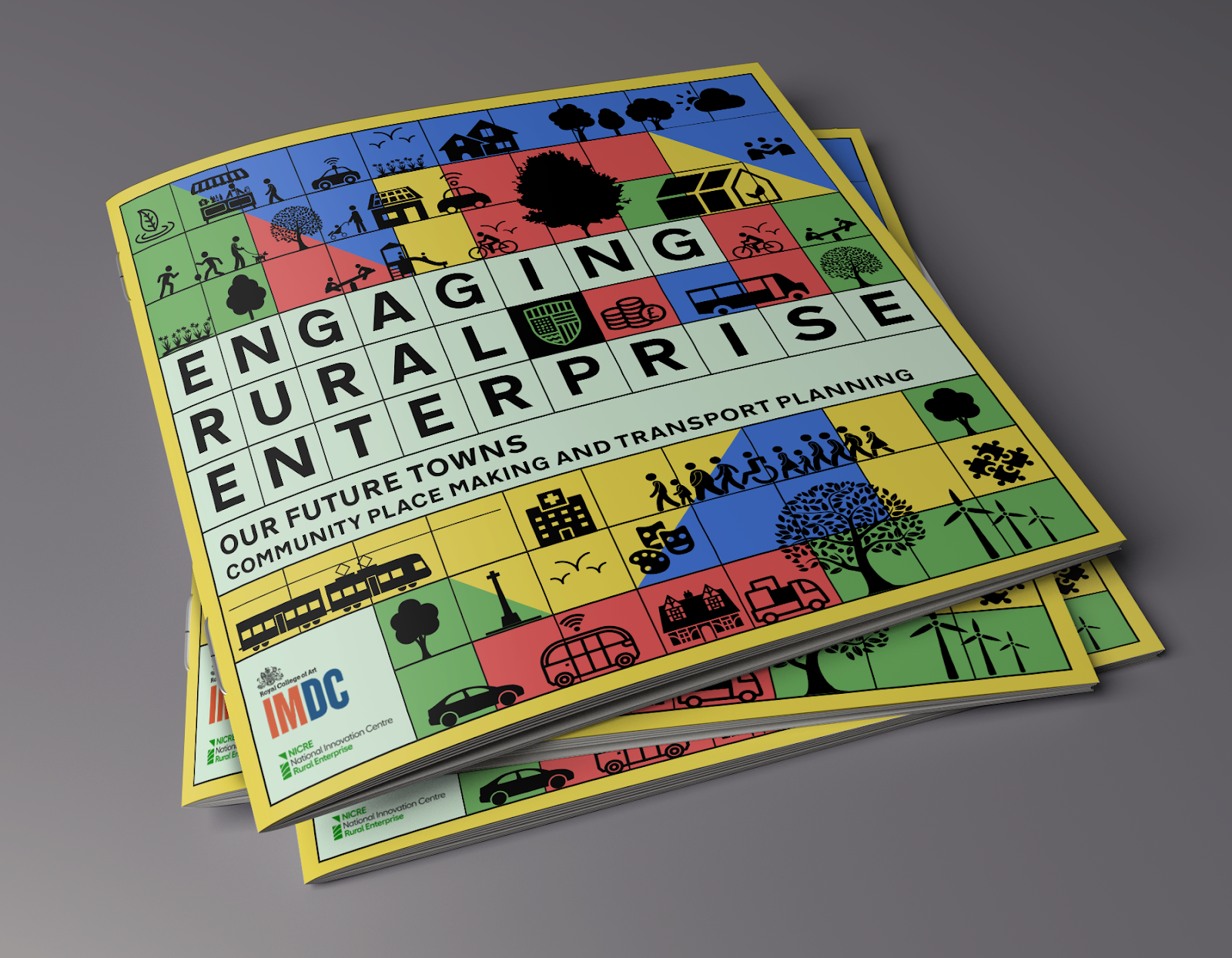
Key details
Date
- 17 February 2022
Author
- Dan Phillips
Read time
- 3 minutes
Rural communities are facing challenges from many directions and the government is looking to entrepreneurs to unlock their potential through innovative businesses and creative approaches, writes Dan Phillips, an innovation research fellow at the Intelligent Mobility Design Centre, Royal College of Art.
Key details
Date
- 17 February 2022
Author
- Dan Phillips
Read time
- 3 minutes
“The challenges of our time are indeed global in scale but the most effective and catalytic solutions can often be found at the local level.”
Innovation Research Fellow, IMDC

The engaging rural enterprises project worked with entrepreneurs to understand their feelings towards their towns and transport system and provides insights and tools that help others engage with a range of issues, from inclusive wellbeing to environmental restoration. Building on prior work, Our Future Towns uses theories of system change to connect with entrepreneurs’ hearts and minds, to design our future towns together.

We worked with the National Innovation Centre for Rural Enterprise (NICRE), which funded this research, and other partners, and included 14 different organisations from around the Tyne valley in surveys and workshops throughout 2021. They included for-profit and social enterprises involved in manufacturing, hospitality, tourism, retail and food and had expertise in marketing, infrastructure development and partnership building amongst other skills.

Participants shared common values including a sense of community and valued hard work, passion and a drive to succeed. They saw value in their historic market towns and nature but also recognised barriers including the challenge of collaborating with councils and accessing funding.
They identified positives during the pandemic, from communities helping each other, and the benefits of digital inclusion, but they were also frustrated by the way shared spaces were abandoned, the perceived failure of government and the isolation that many people felt.
Their vision for the future centred on helping independent businesses and town councils work together to support thriving town centres that are self-sustaining and inclusive, with space and time for everyone. To achieve this they would like to see more community-owned services and organisations that provide focal points for work, play and learning, connected to green spaces, public transport, walking and micro-mobility networks that reach within and between their towns.

They want to see more collaboration and less competition especially between different levels of government. And they need more joined-up funding and investment to build community enterprises that help everyone succeed. In terms of transport, they wanted to see integrated public transport but recognised that this needs political will.
'We need to future proof and get people to think where we are going in ten years time. There’s a whole education piece that needs to be done there really'
When it comes to the climate crisis, they told us that it's always easier to keep doing what we’ve always done, but we have to make our communities accountable for their impact and invest in change.
'I don’t think you can be serious about responses to climate change without those sorts of practical actions that make it easy for people'
We developed four different themes, grouping different types of interventions within them to foster imagination and creativity during the workshops.

While maps didn’t necessarily support holistic thinking, the range of themes encouraged a variety of creative responses:
- An environmental theme connecting wellbeing centres, walking networks and renewable power to the surrounding countryside.
- A social theme identifying the need for inclusion and safety in our towns, by repurposing buildings for young and old and creating safe micromobility routes and hubs.
- A culture theme celebrating rural arts and culture connected through a public transport network and a ‘Tyne Valley Together” transport and culture card.
- An economic theme where towns focus on their centres, provide logistics hubs to manage deliveries and smaller car parks that shift towards E-charging and car sharing and protect towns from unnecessary traffic.

We developed a range of ‘future streets’ that encouraged participants to reimagine their town centres. While entrepreneurs like the idea of change they can’t always imagine how this can be done without inconveniencing people too much.


We also indicated the tools and approaches that might help others engage in their towns' future. While the potential is huge, there are also a number of challenges: from the need to create a patchwork vision based on multiple perspectives, not simply on entrepreneurial activity, collaboration between towns and between business sectors, the removal of community-oriented barriers that come from poorly thought out support, planning and regulation and the need to build a diverse team to bring a community vision to life.

We see an opportunity for more radical change but it will only happen through joined-up and creative thinking. Every town has the potential to rebuild its centres for communities to come together, to develop local transport hubs that point to a less car-dominated future, and reconfigure shared assets so they can grow new connections and businesses that are fit for the twenty-first century.

For more information please visit Engaging Enterprises and email us at [email protected]
Thanks to the entrepreneurs of Northumberland and our partner organisations for supporting this design research:
- Chartered Institute of Highways and Transportation
- Community Action Northumberland
- Haltwhistle Partnership
- Prudhoe Community Partnership
- Royal Town Planning Institute
- Rural Design Centre
- The Transport Planning Society
- Tyne Valley Community Rail Partnership
With thanks to the National Innovation Centre for Rural Enterprise (NICRE) for funding this research.